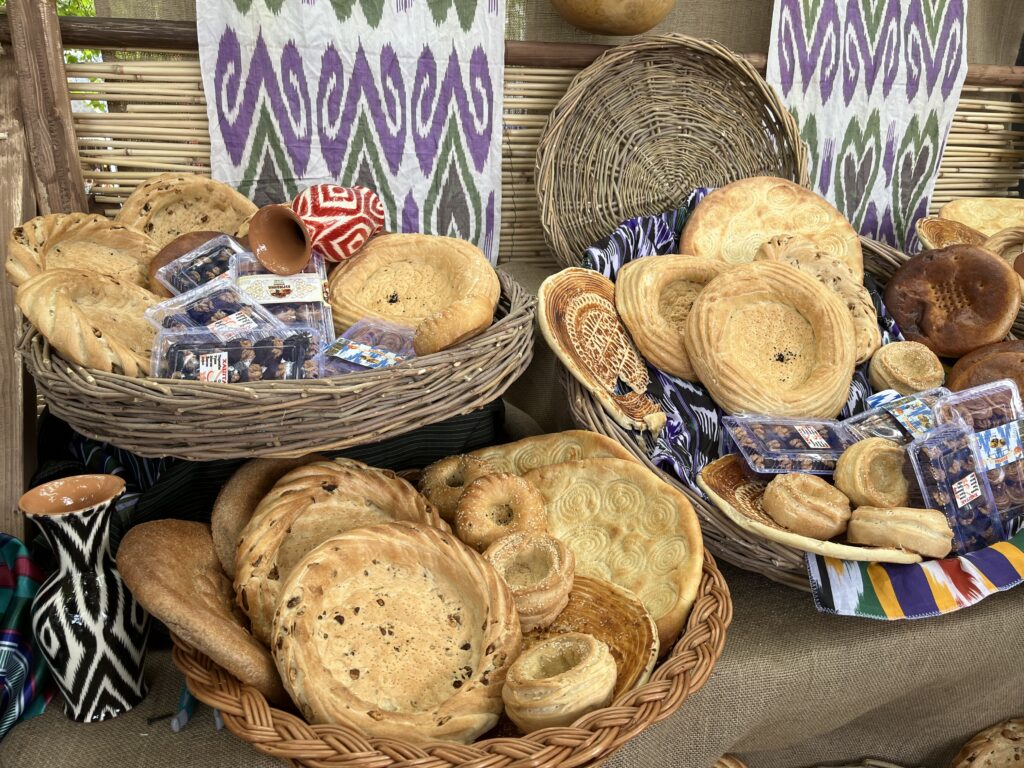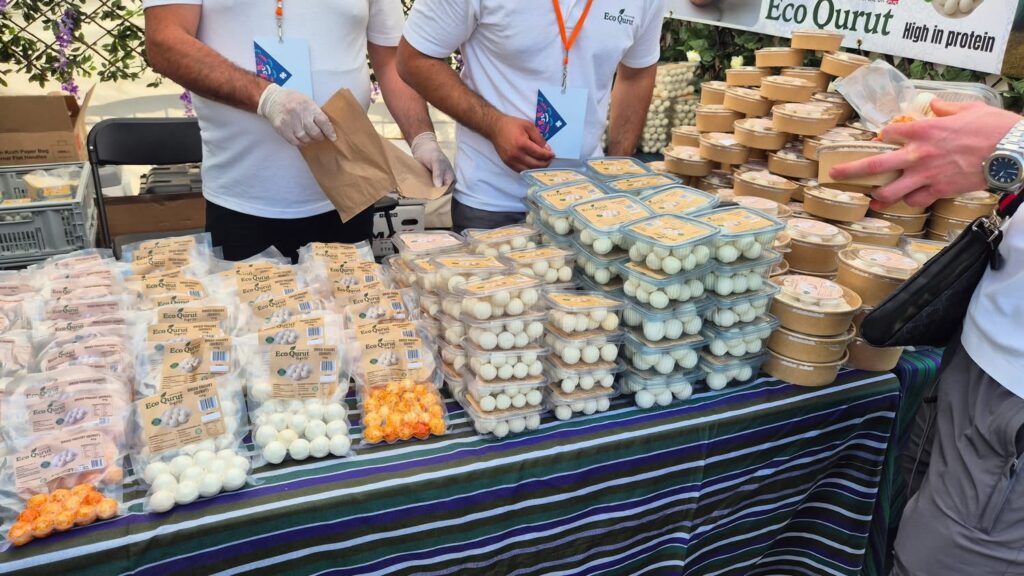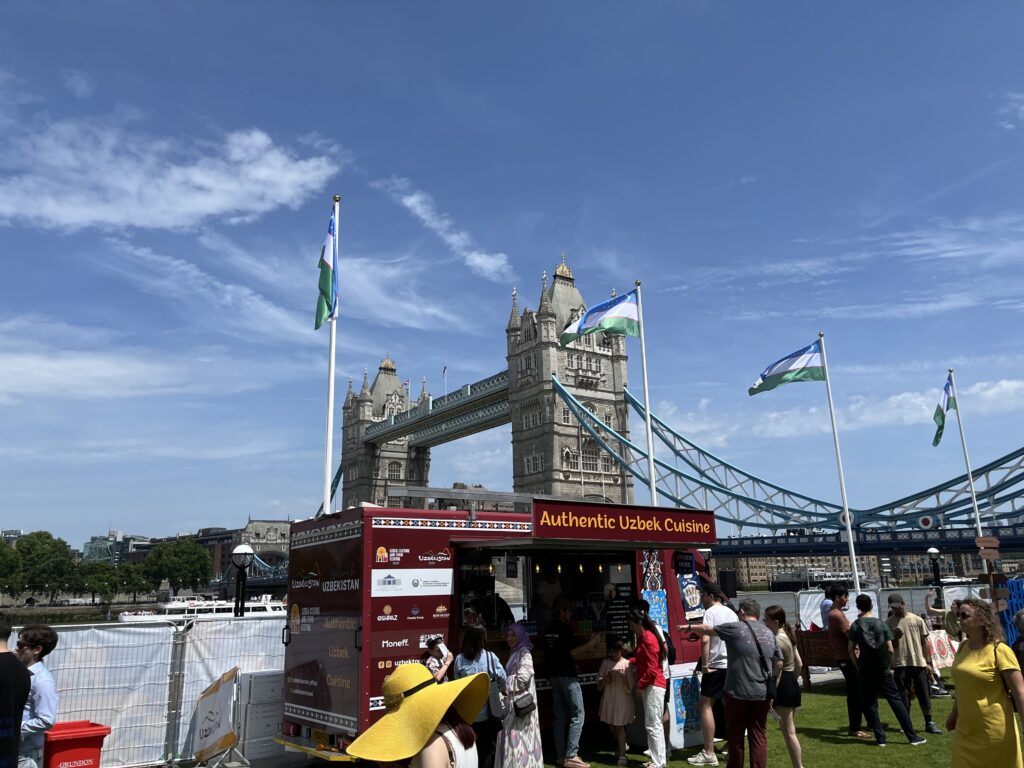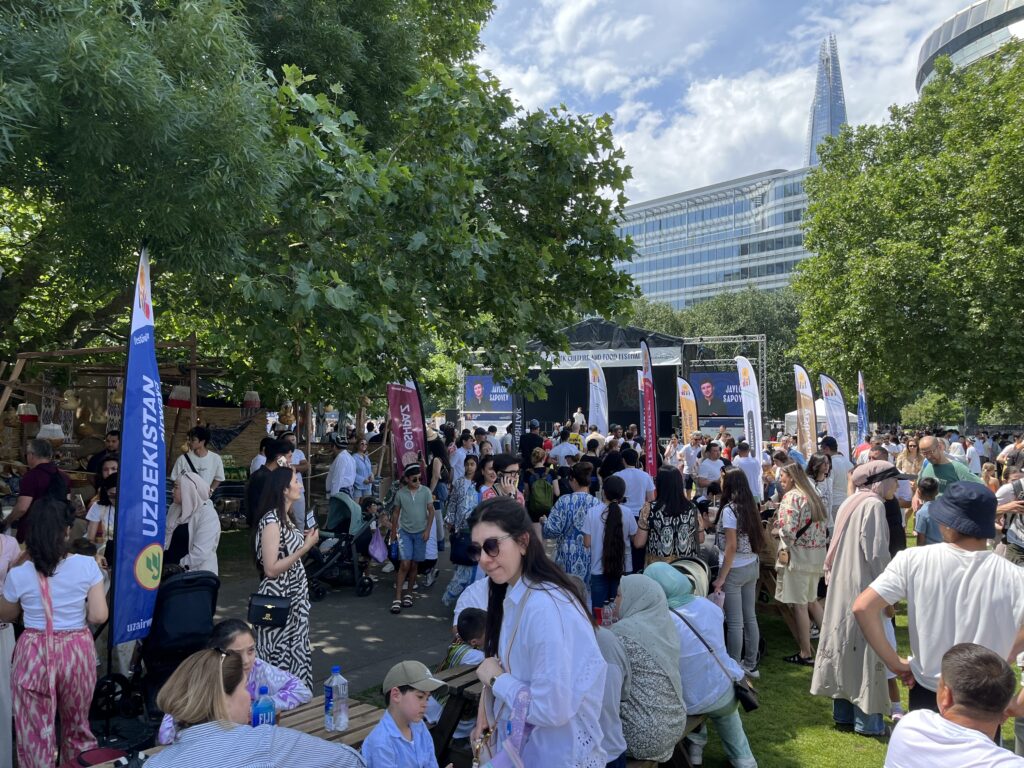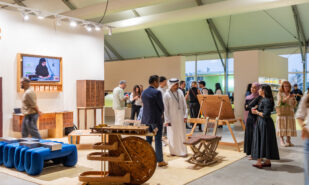2,400 Kilos of Pilaf with a View of the Tower: The Uzbek Culture and Food Festival Returns to London
On this hot June day, one of London’s central locations transformed into a true oasis of Central Asia: the third annual Uzbek Culture and Food Festival brought together thousands of guests eager to experience the art, music, crafts, and, of course, cuisine of Uzbekistan.
London Welcomes the East
Fruits, pilaf, spices, traditional clothing, and Uzbek flags fluttering under the English sky — right by the iconic Tower Bridge, the Uzbek Culture and Food Festival unfolded once again. This year’s event is set to surpass last year’s record of 30,000 visitors — and, let’s be clear, the first day of this two-day festival is already a success.
The festival stands out for its full authenticity. Every walnut, every dried apricot, even the melons sold at the stalls were brought over from Uzbekistan. A small Eastern-style market stretches along the park pathways, evoking the atmosphere of a caravanserai: mounds of dried fruit, fragrant spices, almonds, and walnuts. Children in chapans wander by, and at the stall selling kurut, the queue is as long as outside a London pub on a Friday night.
From the speakers: live vocals, the sharp and rhythmic sounds of the doira and surnay. The crowd responds: women in traditional dresses start dancing, someone waves an Uzbek flag above the crowd, children clap along to the beat.
Gastronomy on Wheels
The festival marks the final stop of the Uzbek Caravan project — a culinary expedition across the UK. In the weeks leading up to the festival, this mobile kitchen, which won the British Street Food Awards 2025, toured six British cities, offering passersby a taste of real Uzbek plov. This wasn’t just a food truck, but a mini-festival on wheels, a cultural ambassador infused with the aromas of cumin and fresh coriander. It journeyed through Edinburgh, Manchester, Liverpool, Cardiff, Oxford, and finally ended its trip in London.
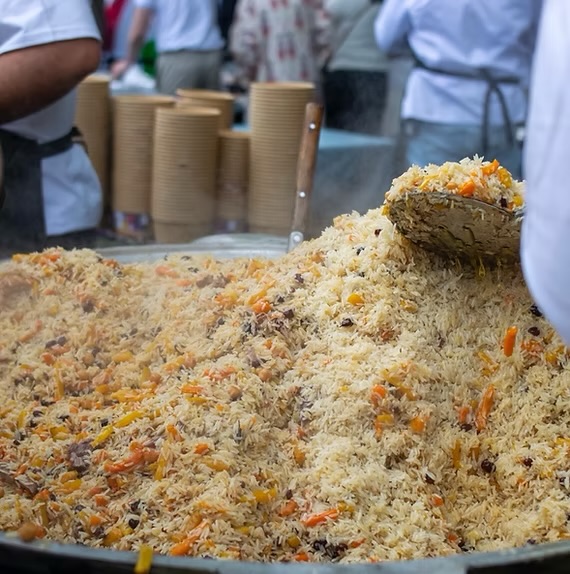
Of course, festival cooking comes with its own challenges. According to festival organiser Muzaffar Sadykov, the team has once again faced overwhelming demand:
“Last year the queue for plov was far too long. We try to speed up, but people keep coming — and everyone wants plov. Right now we have 40 people working — 20 cooks and 20 assistants — but they simply can’t keep up. We’ve already cooked 1,200 kilos of plov just today — that’s over a ton — and we’re planning the same amount tomorrow. Last year, we made exactly one ton per day. So hopefully, there’ll be enough plov for everyone,” Muzaffar smiles, looking at the long line.
Art, Design, and Craftsmanship

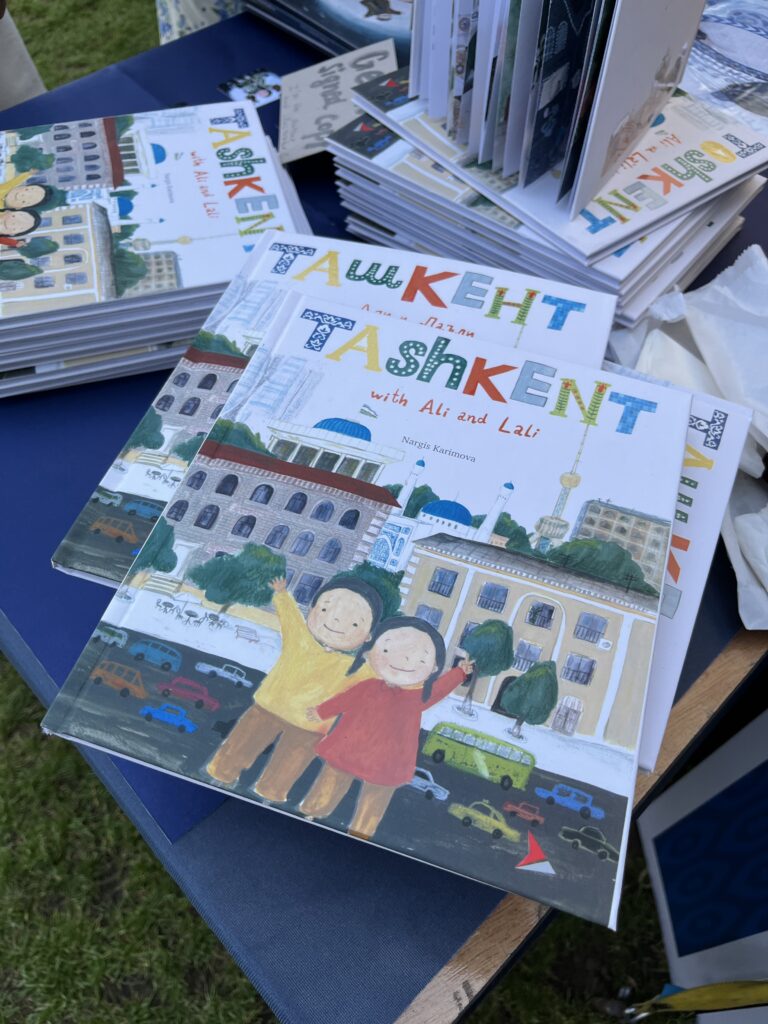
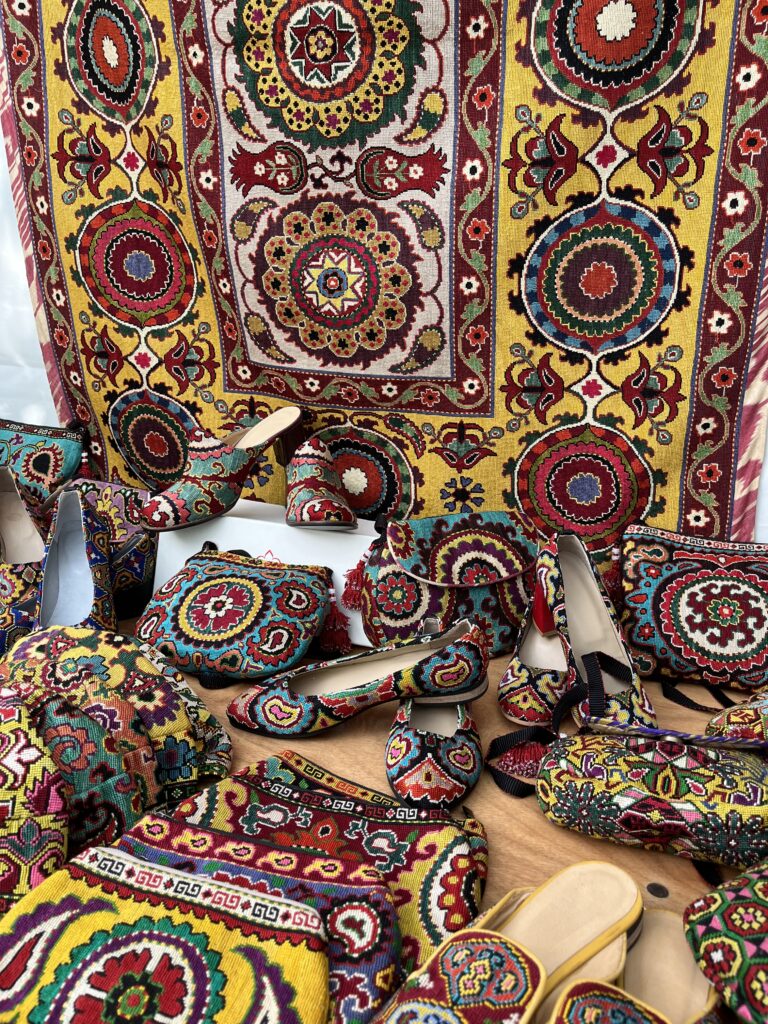

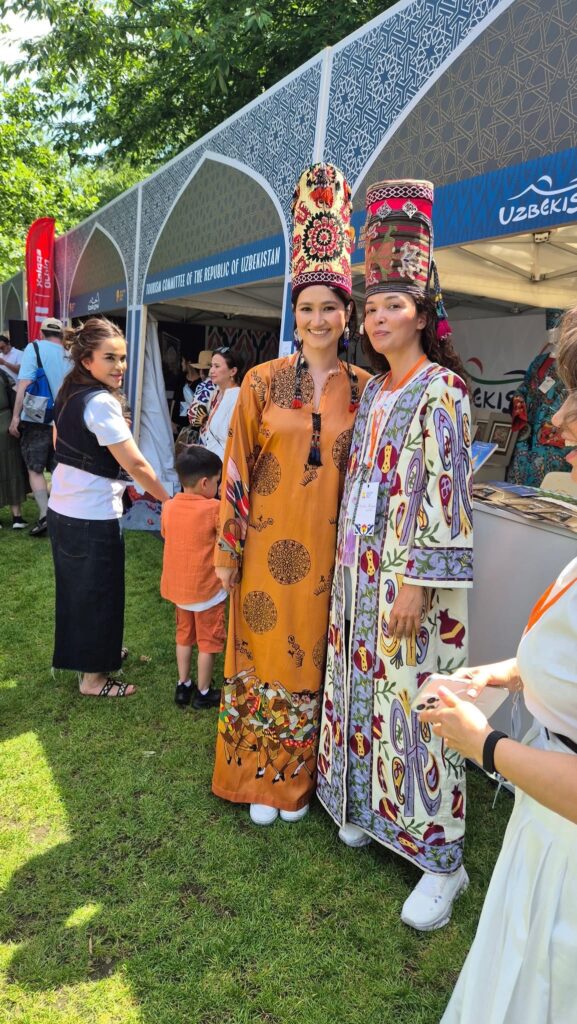
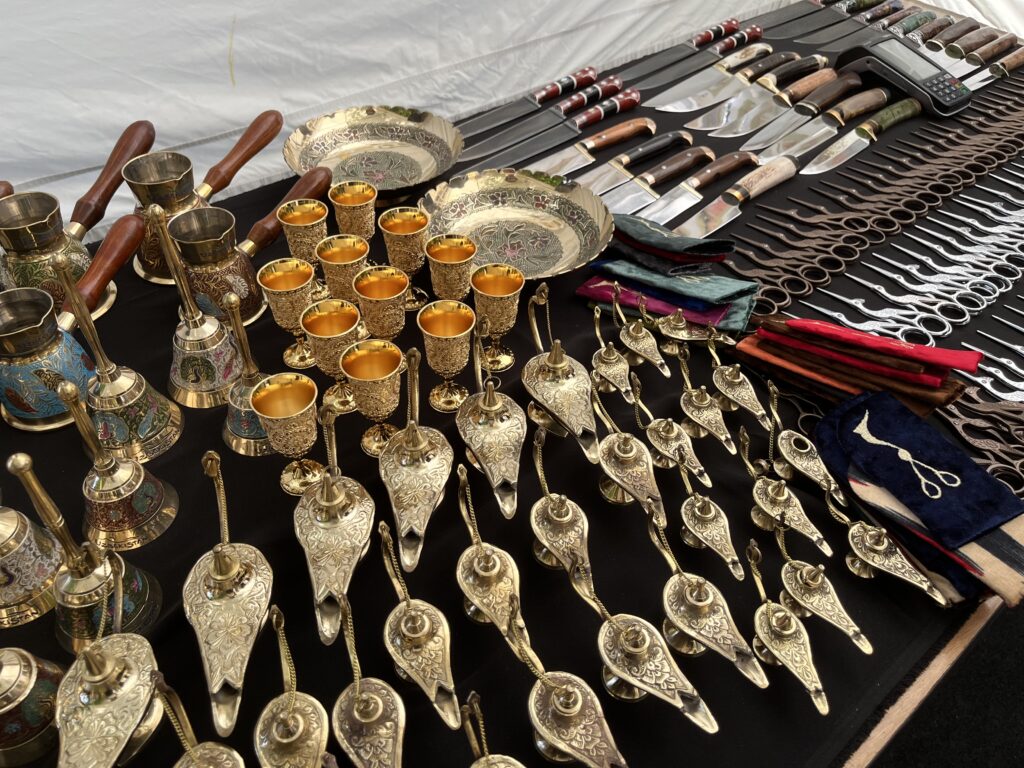
But the festival isn’t just about food and music. A dedicated pavilion showcases Uzbek art and craft: jewellery, carpets, traditional knives, shoes, literature — even fashion collections inspired by Uzbek patterns. Young designers present modern interpretations of traditional dress, while artisans demonstrate ancient techniques live for the audience.
Who’s Behind the Festival
The idea for the festival emerged in 2020 and is the result of years of work by Muzaffar Sadykov and Kamola Makhmudova. From the beginning, their aim was not just to create a holiday for the diaspora, but to build an open platform for cultural dialogue.
In conversation with LC, Muzaffar recalls:
“We started a few years ago, and at first it was hard to convince the London authorities — there had never been Uzbek events on this scale before. For example, we were denied permission to hold the festival near Tower Bridge for two years in a row — it’s such a high-profile location. But we kept proving ourselves: how it would be organised, who the sponsors were, how we’d ensure safety. And now it’s been three years in a row.”
Diaspora as a Driver of Change
The organisers emphasise that despite the relatively small size of the Uzbek diaspora in the UK (about 4,000 people), the festival has become a unifying catalyst. It draws not only locals — last year, Muzaffar says, guests came from Spain, France, Portugal, even the United States. The London venue became a reality thanks to a partnership with Uzbekistan’s Ministry of Tourism and support from private entrepreneurs. For example, the London-based firm Moneff, specialising in international financial services, has supported the festival — an example of state-society collaboration. Muzaffar Sadykov explains:
“After the COVID-19 pandemic, it wasn’t easy for our community to recover. The festival gave people motivation. Everyone started coming together — opening businesses, launching startups, creating podcasts, YouTube channels. Even Uzbek chefs in London have now opened four spots — from Regent Street to Brent Cross.”
He adds that the festival team is careful about curating what gets presented:
“We work with the Ministry of Culture and the Ministry of Tourism to jointly select what to showcase. It’s important to us that the British public sees not a stereotypical Eastern backdrop, but the real, vibrant diversity of Uzbek culture. There are traditions — crafts, national music — but also modernity: DJs and fashion designers.”
Any festival is a living organism that evolves and grows. And in a world where we hear more and more about borders and divisions, an Uzbek celebration in an English park is a reminder that a festival can be a universal language — especially when it smells of tandir bread and fresh melons.


